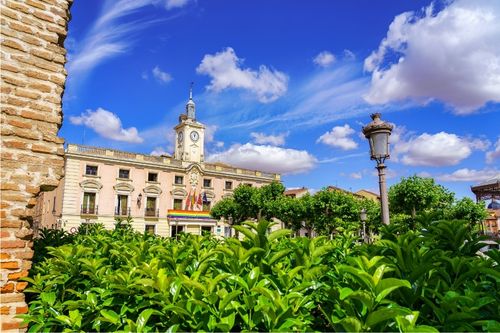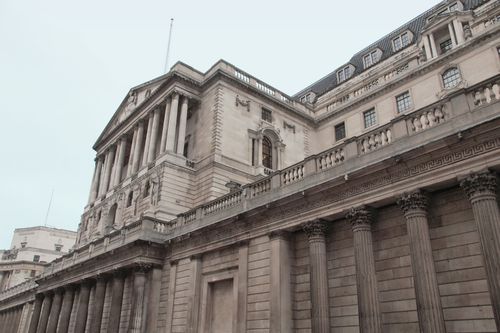Table of Contents
London is famous for its universities
London is a part of the best capital cities in the world. Every year, thousands of students prefer to pursue higher education in London. For higher education, students who want to move to London can choose various study options. If you are one of those students going to London for further education, then you must determine which universities in London are best for you.
London has more universities than any other city in the United Kingdom. Although it can be an expensive place to live, there are excellent public transportation options, including cycle paths, student discounts, and thrift shopping to help you save money. With such a large and diverse population, there is always something new to see, do, or eat and a diverse range of green spaces to explore.
5 most famous universities in London
University College London (UCL)
In the year 2020, University College London (UCL) surpassed Imperial as the highest-ranked university in London, rising two places to eighth in the QS World University Rankings.
Like Imperial, the university is extremely popular with international students, who account for more than 31 percent of its student body. It is a multidisciplinary institute that covers a wide range of subjects and has a high percentage of 53% of postgraduate students.
Its faculties and teaching hospitals are all in the heart of central London, close to the British Library and a cluster of other leading London universities, including SOAS and Birkbeck. The main Gower Street campus is also a short walk from the Soho party scene and the Oxford Circus shopping district.
Imperial College London

Imperial College London ranked ninth in the world in 2020. This science and technology-focused institution is popular for its engineering and natural sciences leadership, as well as a prestigious business school and one of the largest medical faculties in the UK.
Imperial College London is another top UK university with a strong global appeal, as evidenced by its large number of international students (around 37 percent of the student population). Its main campus is in South Kensington, close to the city center. Students will be close to Hyde Park, the historic concert venue Royal Albert Hall, the luxury department store Harrods, and several of the city’s most important museums.
King’s College London
King’s College London is one of the University of London’s largest and oldest collegiate colleges and ranked 33rd in the world this year. It is a research-led university and is a popular choice for international students, who account for more than 43 percent of the student body (including students from the rest of the EU). Postgraduates account for roughly 40 percent of its 31,300 enrolled students.
It is well-known for its courses in the humanities, law, and the sciences, including health sciences. King’s College London claims to be ‘the most central university in London,’ with five London campuses, four relatively close to the river Thames, near iconic landmarks such as Tower Bridge, the London Eye, and Big Ben.
London School of Economics and Political Science (LSE)

LSE, the United Kingdom’s only university specializing in social sciences, ranked 44th in the world in 2020. It ranks even higher in many individual subject rankings, reflecting its role as a world-leading pioneer in anthropology, politics, sociology, law, and accounting.
Another highly-ranked international institution, LSE, has over 100 languages spoken on campus. It is also in the Chancery Lane neighborhood, historically associated with the legal professions. It’s just north of the river, close to the British Library and the cultural institutions of Trafalgar Square. You can also enjoy the nightlife and theatres of the West End as they are also close to the university.
Queen Mary, University of London
Queen Mary, University of London (QMUL), ranked 126th in the world in 2020, provides teaching and research in many subjects, including medicine and dentistry at Barts and The London School of Medicine and Dentistry. Around 4,000 QMUL’s 25,130 students are enrolled in joint programs in China, Greece, and France.
The university’s main campus is in Mile End, close to many of the recently regenerated and increasingly trendy parts of the East End, such as Brick Lane’s curry houses, Whitechapel & Hoxton’s art galleries, and Shoreditch’s hipster-filled bars and music venues.
QMUL announced plans in August 2015 to launch a free business advice scheme for UK start-ups in the financial and technology industries, now known as the qLegal scheme.
Key takeaways
- People consider London one of the best capital cities in the world. Every year, many students prefer London for their higher studies. Students who want to move to London have access to various study options.
- London has more universities than any other city in the United Kingdom. London has excellent public transportation options, including cycle paths. It is a city with a large and diverse population, and it always provides something new to see, do, or eat.
- University College London, Queen Mary, University of London, Imperial College London, and Kings College London are some of London’s most famous and high-ranking universities.
Did you find this blog informative? If so, please share your thoughts in the comments section below. Click here to contact us for more information on universities in London. We would be happy to assist you with your queries.
Liked this blog? Read next: Introduction to the university of Huddersfield
FAQs
Q1. How many universities are there in London?
Ans- There are approximately 40 universities in and around London, each with unique strengths.
Q2. Which university in the UK provides courses at low fees for international students?
Ans- University of Cumbria, Coventry University, Staffordshire University, The University of Bolton, Leeds Trinity University, The University of Sunderland, Plymouth University, and The University of Suffolk provide courses at low tuition fees in the UK.
Q3. What qualifications do I need to study in the UK?
Ans- Students must complete at least three years of higher education. English language requirements are UKVI IELTS 4.5 to 5.5 or an accepted equivalent to study in the UK.







